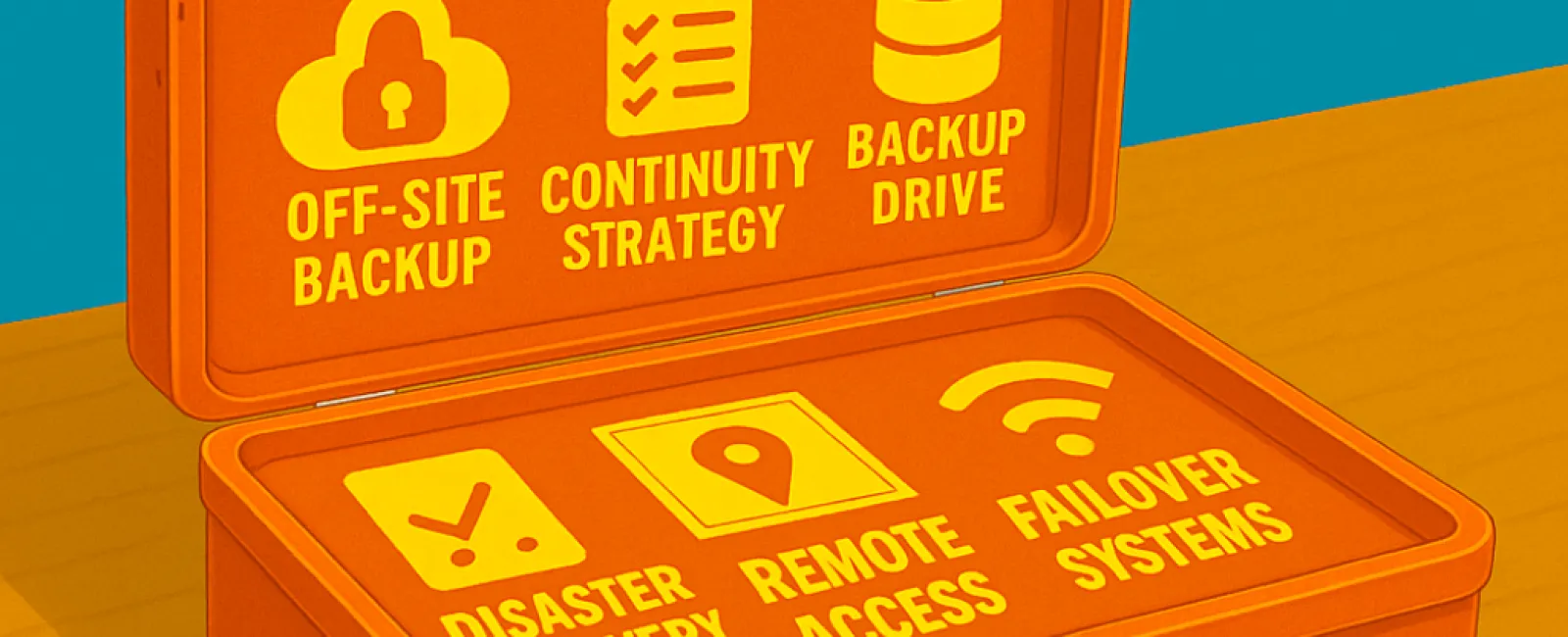July 28, 2025
Unexpected power failures, cyberattacks, hardware malfunctions, and natural catastrophes often strike without warning, posing severe threats to small businesses. Many believe that simply having backups is sufficient, but restoring a file alone doesn't guarantee your business stays functional. If your systems are inaccessible, remote work is unsupported, or communication with your team and clients breaks down, even brief interruptions can cause lasting damage. A dependable IT partner doesn't just provide backups—they deliver a comprehensive strategy to keep your business running smoothly through any crisis.
Backups Are Vital, But Continuity Is Critical
Backups form an essential foundation, but they represent only one piece of the puzzle. What truly safeguards your business is a business continuity plan—a forward-thinking approach designed to maintain your operations during and after disruptions.
When your systems fail, files are locked away, or your physical office becomes unusable, having a backup stored locally offers little relief. Without a well-defined plan to swiftly restore functionality, you risk significant losses in revenue, reputation, and regulatory compliance.
Understanding the Difference: Backups vs. Business Continuity
Many businesses make this mistake:
●
Backups enable data restoration.
●
Continuity ensures your business keeps running, no matter the obstacle.
An effective continuity plan addresses crucial questions such as:
●
How quickly can we resume operations?
●
Where can our team work if the office is inaccessible?
●
Which systems are absolutely critical?
●
Who is responsible for activating the recovery process?
It also incorporates key elements like:
●
Encrypted, off-site, and unalterable backups
●
Clearly defined recovery time objectives (RTO) and recovery point objectives (RPO)
●
Preparedness for remote work scenarios
●
Redundant infrastructure and automatic failovers
●
Regularly scheduled disaster simulation drills
If your IT provider can't confidently guide you through these essentials, you're not protected—you're just fortunate so far.
Could This Happen to You?
This isn't a scare tactic—it's a reality check. Real disasters with serious consequences have struck recently:
●
Florida hurricanes forced hundreds of businesses to shut down, leaving those without cloud access completely immobilized.
●
North Carolina floods wiped out on-site servers, erasing months of vital records and invoices.
●
California wildfires destroyed entire office buildings in Pacific Palisades, many lacking off-site recovery plans.
●
Numerous small businesses struck by ransomware have discovered their backups were corrupted or never properly tested.
Disasters don't discriminate—they affect businesses just like yours every day.
Essential Questions to Ask Today
If disaster strikes tomorrow, can your business keep operating?
Talk to your IT provider and ask:
●
How quickly can we recover from a ransomware attack?
●
Are our backups regularly tested, and which systems do they cover?
●
What's the plan if a flood or fire makes our office unusable?
●
Is our continuity strategy compliant with industry standards?
●
Can we continue serving clients if our team must work remotely?
If you can't answer these with full confidence, your business might already be vulnerable.
Disasters Are Inevitable. Downtime Doesn't Have To Be.
While you can't prevent every power outage, storm, or cyberattack, you can control how your business responds.
A reliable IT provider helps you bounce back.
An exceptional one ensures you never miss a beat.
Ready to assess your business's resilience?
Click Here or call us at 877-310-0123 to schedule your FREE 15-Minute Discovery Call and let's ensure disasters never lead to downtime.





